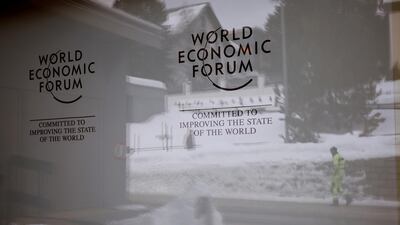As industry increasingly makes use of technologies such as robotics, artificial intelligence and the Internet of Things there will be a rapid and widespread change to the way goods are produced, adding to the already complex challenge countries are facing to develop manufacturing capabilities and stimulate economic growth.
Within this trend there is a unique opportunity for a handful of countries, the UAE among them, which are in a position to take advantage of how emerging technologies are influencing manufacturing and leapfrog other economies that have traditionally had bigger production capacity.
According to a report released by the World Economic Forum (Wef) on Friday, the UAE is well positioned for the future as it ranks in the top quartile of countries performing well in areas such as technology and innovation, human capital, and trade.
_____
Read more:
Trump surprises with decision to attend Davos economic forum
WEF gathers experts in the UAE to brainstorm on building a vision for 2030
Mapping the UAE's transformation
______
The current period of upheaval – dubbed the Fourth Industrial Revolution by the Wef – driven by emerging technologies such as the Internet of Things, AI, robotics and additive manufacturing will result in “the development of new production techniques and business models that will fundamentally transform production”.
Countries that do not currently have a large manufacturing base could capitalise, according to the Wef.
"New technological paradigms serve as a window of opportunity for lagging countries to catch up, since they can enter emerging industries at a later stage without the legacy costs of being locked into existing technologies," the Readiness for the Future of Production report said, which was produced in collaboration with global consultants AT Kearney.
Along with the UAE, other high-potential economies including Australia, Norway and Hong Kong, could leapfrog legacy countries such as India, Mexico and the Philippines, which despite a strong manufacturing base today are at risk for the future due to weaker performance in areas such as innovation.
To succeed in overtaking these legacy economies, the UAE should make investments, at home and internationally, to improve readiness for the new era. It will also be important to create a modern labour force with the capability to meet new methods of production, the report said.
“In a changing production landscape, each country will need to differentiate itself, capitalise on competitive advantages and make wise trade-offs in forming its own unique strategy for the future of production,” said Johan Aurik, managing partner and chairman of AT Kearney.
The World Economic Forum is hosting its annual meeting in Davos later this month, with leading business and political names including US president Donald Trump expected to attend.


